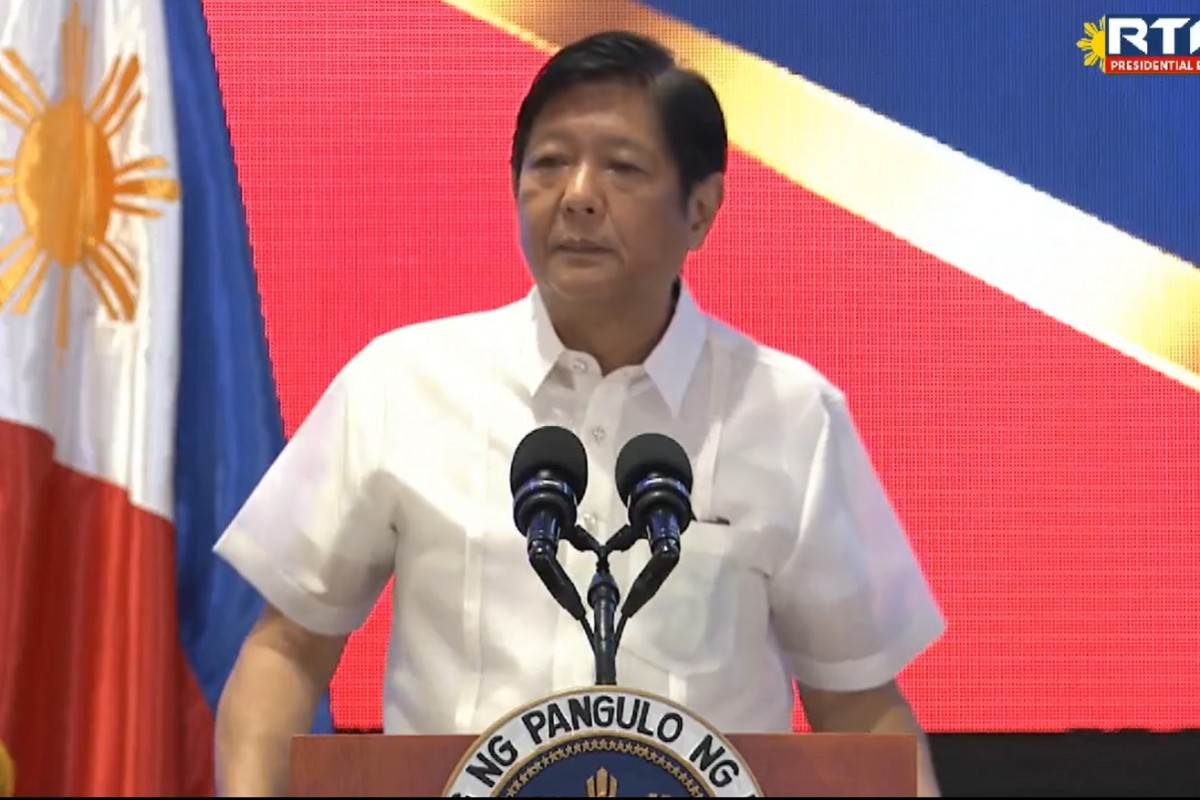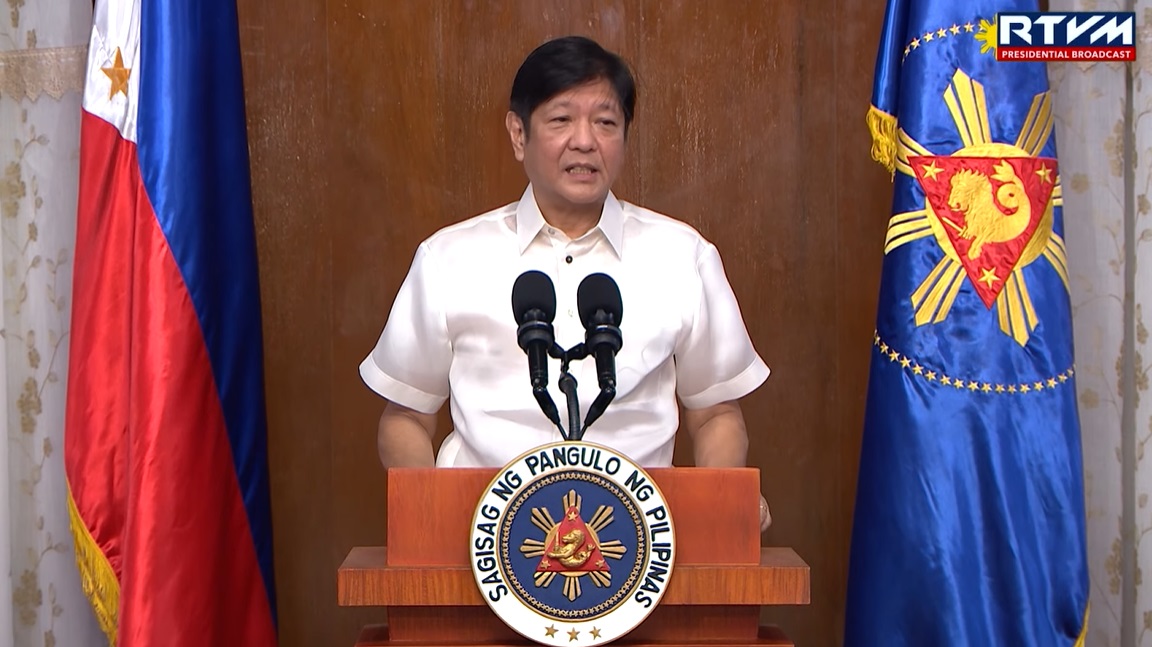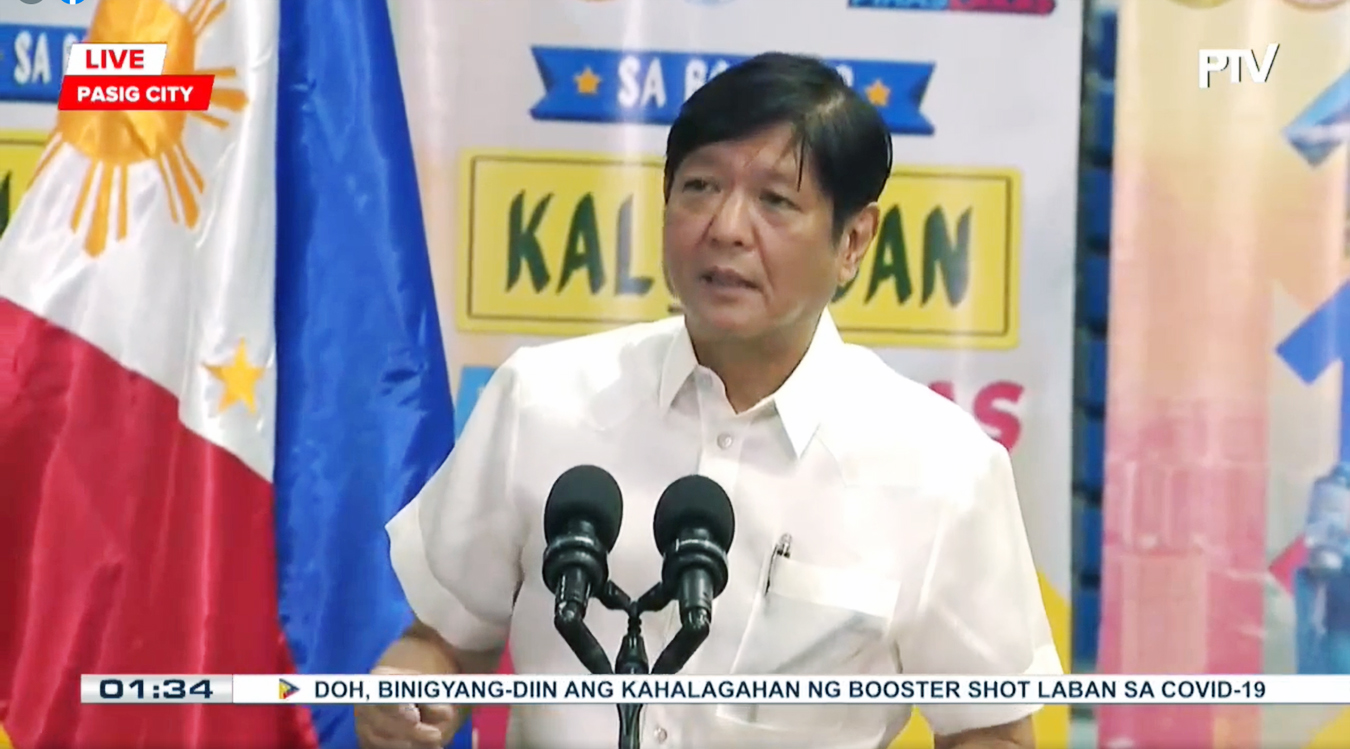MANILA -- President Ferdinand "Bongbong" Marcos Jr. on Thursday paid tribute to Filipino health researchers for their continuing sacrifice and hard work amid the COVID-19 pandemic.
"I always start with a note of gratitude and of thanks for your sacrifice and for the risks that you take, and all that you have been able to do to help us through this pandemic," Marcos said in his speech at the 15th Philippine National Health Research System (PNHRS) Week Celebration in Pampanga.
"It is nothing less than having you have helped to keep millions of people alive. There is nothing more heroic in my mind than what you have achieved," he said.
The chief executive recalled that he was one of the "very early sufferers" as he had tested positive for COVID-19 after coming home from Europe in the second week of March 2020.
"Thank you not only from me as a sufferer of COVID, but for all the millions who somehow have reaped the benefit of your hard work," he said.
He recalled it was the first time in the country's experience that doctors were clueless about what was happening as well as the cure for the novel virus.
"There was a total lack of information, of knowledge about this new pandemic. And that is why the work that you did that developed the genome sequencing so that we could follow and identify and detect the different strains as they came about, the test kits that you were able to develop for the local community, the modeling that was done," he said.
"This was all a fruit of your partnership, and it is something that has never been seen before," he added.
During his speech, the President commended the Department of Science and Technology - Philippine Council for Health Research and Development for organizing the event along with the Philippine National Health Research System.
He likewise recognized the Central Luzon Health Research and Development Consortium for hosting the celebration.
The chief executive mentioned that the organization's coordination and leadership in their field of study will help ensure that Filipinos "can utilize the maximum economic and social benefits that stem from the rapid developments in science and medicine."
Remove barriers in research
Marcos also mentioned the significance of removing barriers in scientific research and information exchange.
"A key element of this, the work that you do, is the cooperation that you — the different agencies that have come together and have removed all the barriers in terms of the course of scientific research, of exchange of information, of help in facilities, help in using all of the laboratories so that we are able to maximize our efforts," he said.
"This has not only happened here in the Philippines. It happened also around the world whereas we saw for the first time, I think in the history of different countries, we could see that the research institutes were not very jealous of their information, and it was shared at an unprecedented rate," he said.
In addition, the President said the openness of mind and continuing flow of information among agencies have been crucial, critical, and keys to successes enjoyed.
Evidence-based systems
Meanwhile, the chief executive underscored the importance of evidenced-based systems, describing them as "something we rely on."
The President said one of the most significant jobs of government is to provide "actual good information and guidance for what people should be able to do so that they can mitigate the effects."
He further noted that risk communication is crucial during health emergencies and disasters.
"What are practical approaches to preventing and mitigating harm? How can we prepare the Filipino people and disseminate information to vulnerable sectors much more effectively than we have been able to do so far?" he said.
With this, Marcos vowed to continue supporting health researchers "so that together we can create an enabling environment for the Filipino research community that fosters collaboration and cooperation that will yield solutions that will make lives better for our fellow men and women."
The President said he has presented to both Houses of Congress the proposed creation of the Virology Center of the Philippines and the country's own Disease Control Center. (PND)





